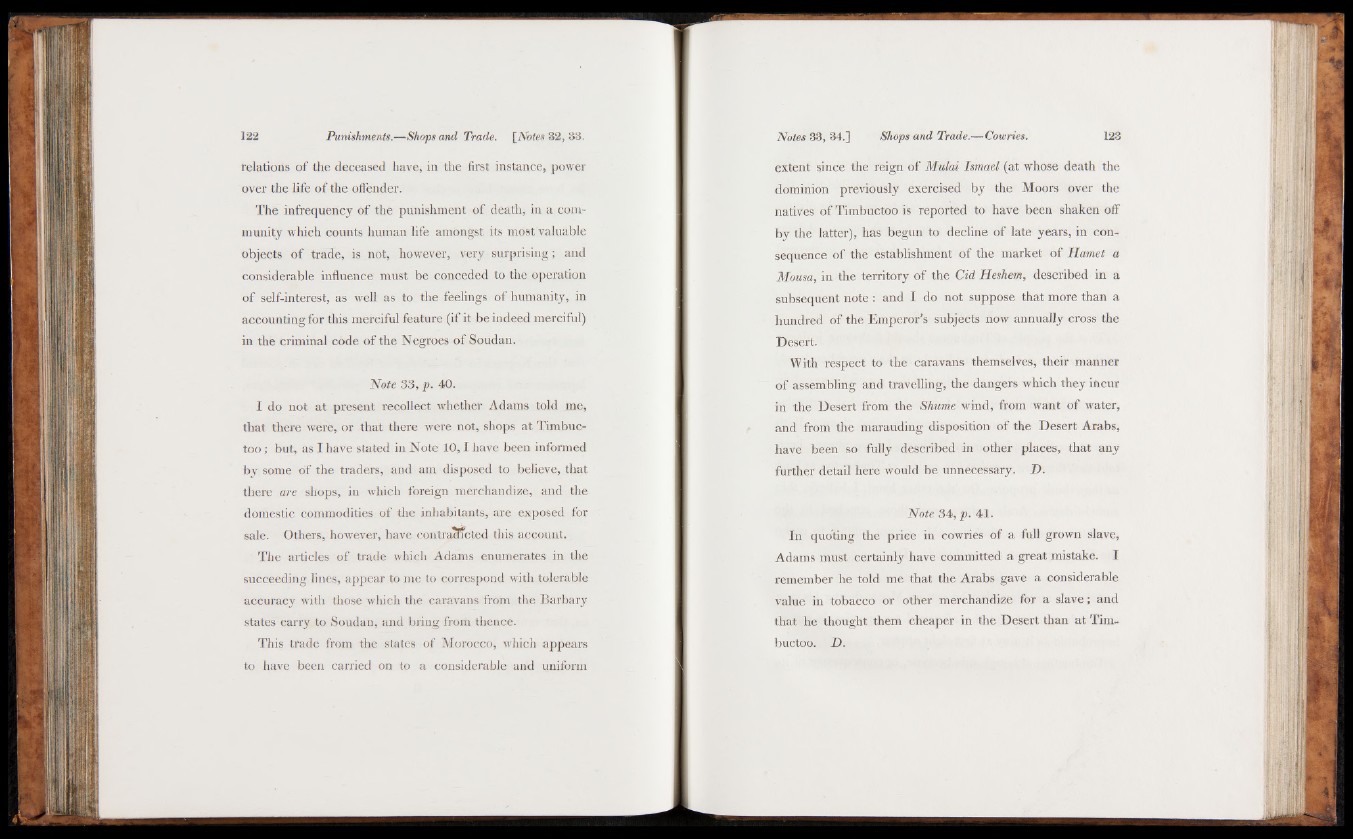
relations of the deceased have, in the first instance, power
over the life of the offender.
The infrequency of the punishment of death, in a community
which counts human life amongst its most valuable
objects of trade, is not, however, very surprising; and
considerable influence must be conceded to the operation
of self-interest, as well as to the feelings of humanity, in
accounting for this merciful feature (if it be indeed merciful)
in the criminal code of the Negroes of Soudan.
Note 33, p. 40.
I do not at present recollect whether Adams told me,
that there were, or that there were not, shops at Timbuc-
too; but, as I have stated in Note 10,1 have been informed
by some of the traders, and am disposed to believe, that
there are shops, in which foreign merchandize, and the
domestic commodities of the inhabitants, are exposed for
sale. Others, however, have contraeffcted this account.
The articles of trade which Adams enumerates in the
succeeding lines, appear to me to correspond with tolerable
accuracy with those which the caravans from the Barbary
states carry to Soudan, and bring from thence.
This trade from the states of Morocco, which appears
to have been carried on to a considerable and uniform
extent since the reign of Mulai Ismael (at whose death the
dominion previously exercised by the Moors over the
natives of Timbuctoo is reported to have been shaken off
by the latter), has begun to decline of late years, in consequence
of the establishment of the market of Hamet a
Mousa, in the territory of the Cid Heshem, described in a
subsequent note : and I do not suppose that more than a
hundred of the Emperor's subjects now annually cross the
Desert.
With respect to the caravans themselves, their manner
of assembling and travelling, the dangers which they incur
in the Desert from the Shume wind, from want of water,
and from the marauding disposition of the Desert Arabs,
have been so fully described in other places, that any
further detail here would be unnecessary. D.
Note 34, p. 41.
In quoting the price in cowries of a full grown slave,
Adams must certainly have committed a great mistake. I
remember he told me that the Arabs gave a considerable
value in tobacco or other merchandize for a slave; and
that he thought them cheaper in the Desert than at Timbuctoo.
D.